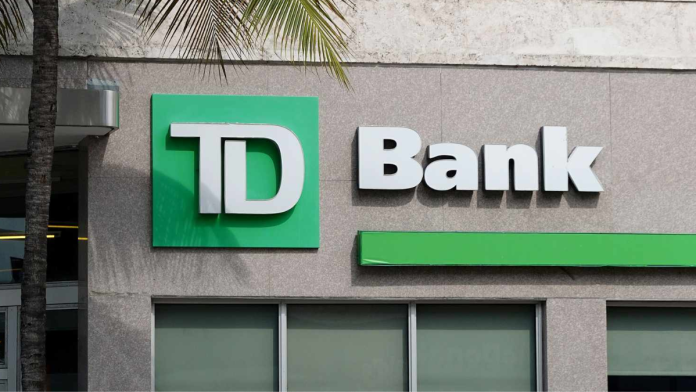Toronto-Dominion Bank, one of Canada’s largest and most trusted financial institutions, is now at the center of a serious money-laundering investigation. Regulators from both Canada and the United States have intensified scrutiny on Toronto-Dominion Bank’s operations, raising widespread concern about its compliance with anti-money-laundering rules. The investigation is drawing attention not only among investors but also across the entire Canadian banking sector, which has traditionally been seen as stable and secure.
This latest probe has placed Toronto-Dominion Bank under intense observation, as authorities aim to examine whether the bank’s systems allowed suspicious transactions to go unnoticed. With a market capitalization of around C$190.8 billion, Toronto-Dominion Bank’s operations and financial health are significant not just for shareholders but also for the broader economy.
The Scope of the Investigation
The investigation focuses on possible lapses in Toronto-Dominion Bank’s compliance procedures. Regulators are checking whether the bank followed all rules for monitoring and reporting large or suspicious transactions. Authorities are particularly interested in whether Toronto-Dominion Bank’s systems and staff properly identified transactions that might be linked to illegal activities.
Toronto-Dominion Bank has operations in both Canada and the United States, which means it must comply with multiple regulatory frameworks. Any failure in anti-money-laundering compliance could trigger fines, sanctions, or stricter regulatory oversight. . The scrutiny on Toronto-Dominion Bank is being closely watched because it sets an example for other financial institutions.
The ongoing probe comes amid growing global concern about financial crimes and the need for banks to ensure transparency in their operations. Regulators are increasing audits, inspections, and compliance checks across major banks to ensure that proper anti-money-laundering mechanisms are in place. In this case, both Canadian and US authorities are examining records, internal controls, and reporting procedures to detect any shortcomings that might have allowed illicit funds to move through the system.
Irvin C. Francois III pleads guilty to CARES Act fraud and money laundering in New Orleans
Stock Market Reaction
News of the investigation has had a noticeable impact on Toronto-Dominion Bank’s stock. As of the latest trading session, TD.TO is priced at C$109.78, down approximately 1.07% from recent highs of C$114.24. The decline reflects investor uncertainty and caution as the investigation unfolds. Toronto-Dominion Bank’s price-to-earnings ratio currently stands at 9.4, which shows that the market is taking a careful approach to evaluating the bank’s financial position amid regulatory scrutiny.
Investors are closely watching how the situation develops, as any fines or operational restrictions could affect the bank’s profitability. While the bank continues to operate normally, market sentiment has shifted slightly, reflecting concerns about potential regulatory penalties and increased compliance costs. Analysts note that such investigations can cause short-term volatility in stock prices, particularly for large banks like Toronto-Dominion Bank that are deeply integrated into the national and international financial system.
Banking Sector Implications
The impact of the investigation is not limited to Toronto-Dominion Bank alone. Other Canadian banks, though not directly implicated, may experience increased attention from regulators. Investors often reassess risks across the banking sector when one major bank, such as Toronto-Dominion Bank, is under scrutiny, leading to cautious trading patterns and a closer look at compliance practices.
This investigation highlights the importance of strict compliance and monitoring within the Canadian banking sector. Coordinated oversight by multiple regulators underlines the seriousness of the matter and reflects global commitment to combating financial crimes. Toronto-Dominion Bank’s case emphasizes that even leading institutions must maintain robust internal controls and reporting systems to prevent money-laundering lapses.
The investigation is ongoing, and authorities continue to collect and analyze data to determine whether Toronto-Dominion Bank’s compliance processes were sufficient. Both regulators and market participants are closely watching the outcomes, which could influence anti-money-laundering enforcement standards across the Canadian financial landscape.


